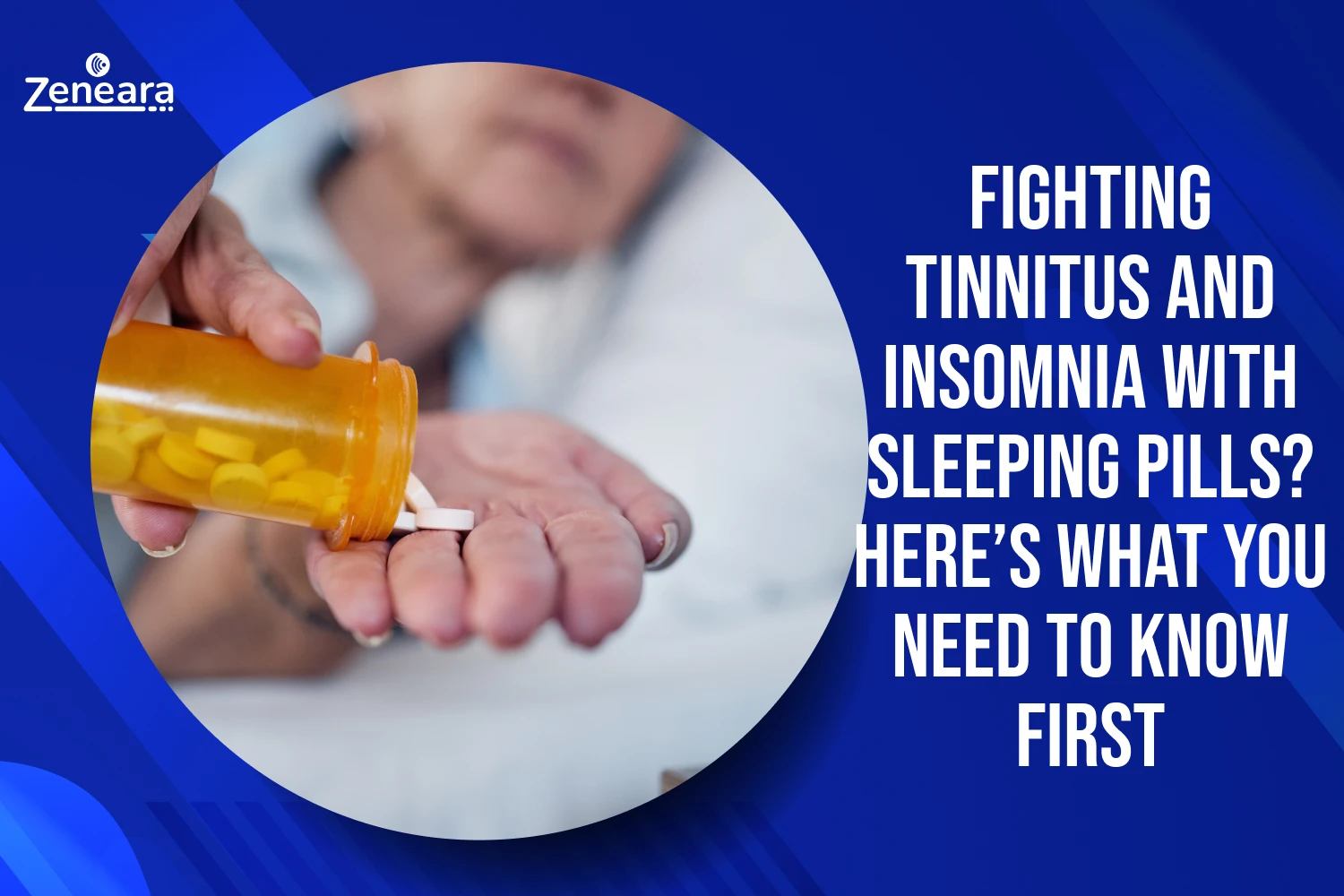Hey, it’s James Barrett here!
Tired of tossing and turning all night, only to wake up with that annoying ringing still in your ears? Yeah, I’ve been there, and trust me… it’s enough to make anyone go crazy.
You try to settle back in, but the noise in your ears just won’t quit, making it impossible to get the rest you need.
When tinnitus disrupts sleep, reaching for a sleeping pill can feel like the only way to get through the night.
But before you pop another pill, consider this:
Some medications, including sleeping aids, have been linked to ear damage.
I’m here to break it down for you and share some insights I’ve learned.
In 2015, an article in U.S. News & World Report highlighted ototoxic medications—drugs that can cause harm to your ears. These include common medications like:
- Non-steroidal anti-inflammatory drugs (NSAIDs)
- Certain antibiotics
- Quinine-based medications
- Diuretics and water pills
- Certain cancer drugs
While this list isn’t comprehensive, it’s eye-opening. The very pills you’re taking to help you sleep might be risking your ear health. Could they be making your tinnitus worse too? It’s worth considering, especially if your symptoms are intensifying after starting a new medication.
Why Sleeping Pills Aren’t Always the Best Solution

Aside from the potential risks to your hearing, sleeping pills come with a host of side effects that can impact your overall health—and your tinnitus.
Here are a few key side effects to watch out for:
- Ototoxicity: As mentioned earlier, some sleep medications, particularly benzodiazepines, can damage the inner ear and worsen tinnitus or even lead to hearing loss over time.
- Sleep Disruption: Ironically, some people experience more fragmented sleep after prolonged use of sleeping pills, meaning you might wake up more often in the middle of the night, feeling groggy and hearing that frustrating ringing louder than before.
- Brain Fog and Cognitive Impairment: Sleeping pills can also affect how well your brain functions the next day. The drowsiness and fogginess they cause can leave you feeling mentally sluggish, making tinnitus more noticeable and harder to ignore during the day.
- Dependency: Relying on sleeping pills can make it harder for your body to fall asleep naturally, causing a cycle of insomnia and increased anxiety, both of which are known to aggravate tinnitus.
What Can You Do Instead?

So, what can you do if sleeping pills aren’t the answer?
#1 Cognitive Behavioral Therapy for Insomnia (CBT-I)
This therapy helps address the root causes of sleepless nights—whether
stress, anxiety, or tinnitus itself. By retraining your brain to relax and manage
stress, CBT-I can improve your sleep quality without medications.
CBT-I also incorporates relaxation techniques such as deep breathing,
progressive muscle relaxation, and mindfulness to help calm your mind and
reduce the impact of stress and tinnitus.
#2 Sound Therapy
If the quiet of night makes your tinnitus unbearable, consider using a white noise machine or nature sounds to mask the ringing. Sound therapy can create a calming environment and make it easier to drift off to sleep.
#3 Sleep Hygiene
Establishing a solid sleep routine can make all the difference. Keep your room cool, dark, and free of distractions. Avoid caffeine or heavy meals in the hours leading up to bedtime, and limit screen time. By creating an environment that promotes relaxation, you can reduce the impact of tinnitus and improve your chances of a peaceful night’s sleep—naturally.
Have you tried any of these approaches, or found something else that worked? I’d love to hear in the reply what’s helping you in your journey toward better sleep and less noise. Let’s inspire each other and keep pushing toward that peaceful night we all deserve.





